Khmer version available HERE.
Background
The Royal Government of Cambodia, as stated in the Forestry Law, has encouraged participatory tree planting by local communities and private sector entities in particular, through the promotion of “private forest registration”. In 2017, the Ministry of Agriculture, Forestry and Fisheries issued a Prakas on the “Private Forest Rules” defining the scope, requirements and procedures in the private forest registration process in Cambodia. The declaration aims to incentivize natural persons or juridical persons who are landowners to plant trees on their private land to increase the supply of timber and non-timber forest products from tree plantations for domestic consumption and export. To achieve the overarching goal of the declaration, the Forestry Administration, Dr. Ly Mengseang (Director of the Department of Private Forest and Forest Plantation Development) initiated the development of the Guidelines on “Establishment and Registration of Private Forests in Cambodia” in 2018. Notwithstanding, the consultations with legal entities under the Forestry Administration, both national and sub-national, to obtain inputs for the development of this guideline are not comprehensive owing to limited resources.
By the end of 2019, the Department of Private Forest and Forest Plantation Development in collaboration with the project “Integrating the Development of Guidelines and Incentives for Piloting the Establishment of Small-scale Private Dalbergia Plantations with the Determination of a Non-detriment Findings Report in Preah Vihear Province, Cambodia” funded by the European Union through the Secretariat of the Convention on International Trade in Endangered Species of Wild Fauna and Flora (CITES) and the project “The registration of small-scale private forest plantation in Cambodia” funded by the Government of the Republic of Korea through AFoCO, initiated and encouraged the preparation of this guideline in order to promote the implementation process and encourage private forest registration in Cambodia. In particular, mobilizing more participation from the private sector (private companies and farmers) has been focused. The process of developing this guideline has organized several consultation meetings and workshops at both the national and sub-national levels, with face-to-face and online meetings with the participation of the private sector, FA officials, researchers, and non-governmental organizations involved in forestry development.
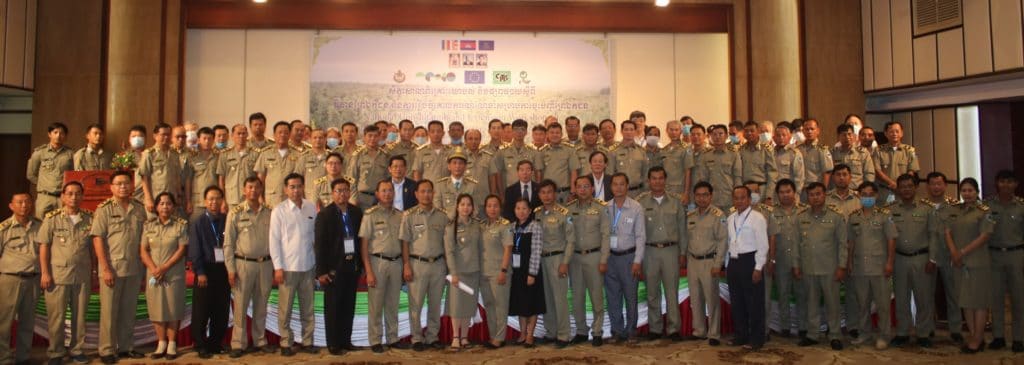
Understanding the Guidelines for Establishing and Registering Private Forests
In the Guidelines on Private Forest Registration in Cambodia, “Private forests are defined as plantations or trees that grow naturally on land that is registered and privately-owned under state valid procedures and laws. Private forest refers to plantation established by natural persons or private legal entities who own land on their private land with the right to occupy in accordance with the land law and are registered as private forest according to the regulations of the Forestry Law and the Prakas No. 327 PRK dated 26 May 2017 on the Private Forest Rule.”
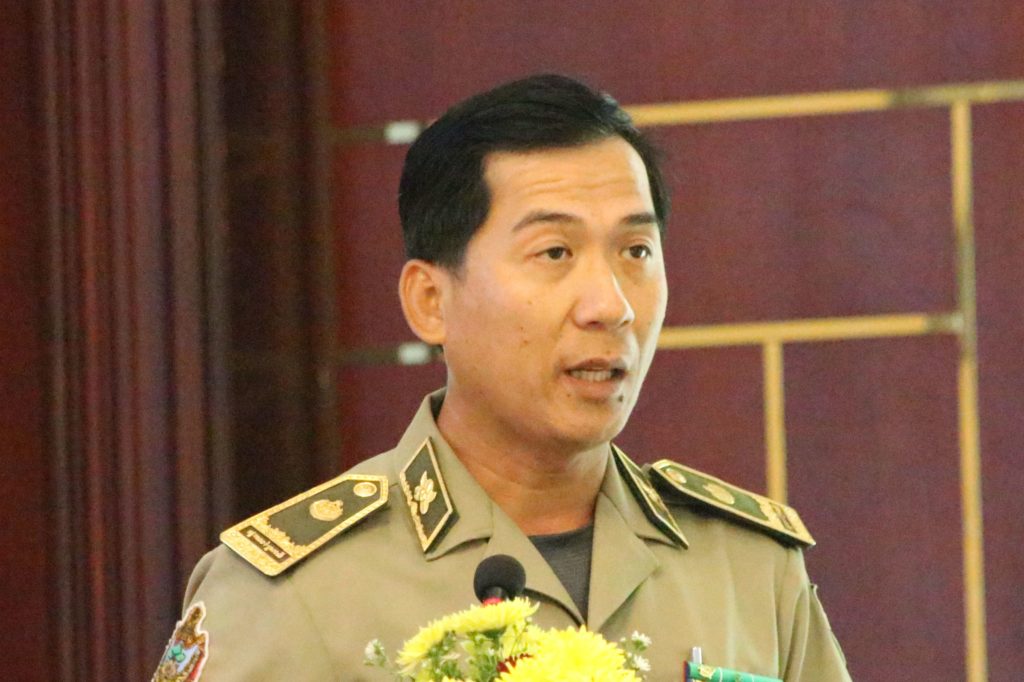
“The Guidelines will guide landowners or legal entities who wish to register their private forests understand the process of establishing and registering private forests, equip them with knowledge and skills in managing private forest plantations, and provide information on the benefits they may receive from the Government.
Mr. Kim Sobon, Deputy Director of the Department of Private Forest and Forest Plantation Development, and project officer of the Private Plantation Registration Project in Cambodia, at the Consultation and Documentation Workshop
Mr. Sobon further noted that Cambodia has the goal of maintaining at least 50% of its land under forest cover to contribute to the country’s Sustainable Development Goals by 2030. In pursuit of this ambitious goal, the Forestry Administration has identified degraded forests and other degraded lands that are available for restoration and introduced initiatives for investing in the establishment of private forest plantations on state land by forging partnerships between various private sector entities.
The Guidelines on Private Forest Registration consist of four chapters. The first provides a context by presenting critical information on the definition of private forests, as well as on supporting legislation, and eligibility. The second elaborates on the process applicants have to follow to register their private tree plantations. The third provides technical instructions on the development of plans for establishing private plantations. The fourth focuses on the harvesting of the trees that have been grown on private land, as well as on mechanisms for the monitoring and tracking of the produced wood by local Forestry Administration units.

“Private forest owners who have registered plantations on private land as a forest The private sector has the right to maintain, develop, use, sell and distribute its products. The transportation of wood products originating from private forests to supply customers or the local market does not require a license permit (LP).”
Mr. Chhong Tol, Chief of Private Forest and Partnership Office, at the Consultation and Documentation Workshop
Practical Procedures for Registering Private Forests
Under the guidelines, private forest plantations are categorized by area, each of which is distinguished by its own application form and place of submission.
There are four categories of private forest forests, as follows:
- Household private forest plantations that consist of land areas of less than 10 hectares. The application form and the hard copies of associated documents under this category shall be submitted to the Forestry Administration Cantonment in the province where the private forest plantation is to be established;
- Small-scale private forest plantations that consist of land areas that range from 10 to 100 hectares. The application form and the hard copies of associated documents under this category shall be submitted to the Provincial Department of Agriculture, Forestry and Fisheries in the province where the private forest plantation is to be established;
- Medium-scale private forest plantations that consist of land areas that range from 100 to 1,000 hectares. The application form and the hard copies of associated documents under this category shall be submitted to the Forestry Administration at the central level in Phnom Penh; and
- Large-scale private forest plantations that consist of land areas that are greater than 1,000 hectares. The application form and the hard copies of associated documents under this category shall be submitted to the Ministry of Agriculture, Forestry and Fisheries in Phnom Penh.
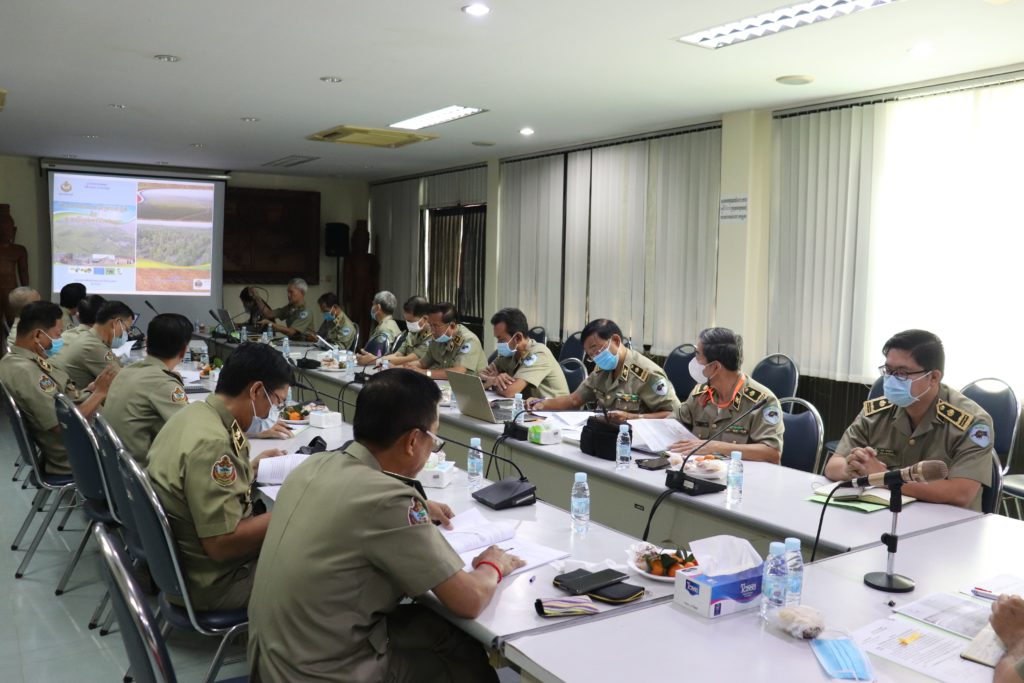
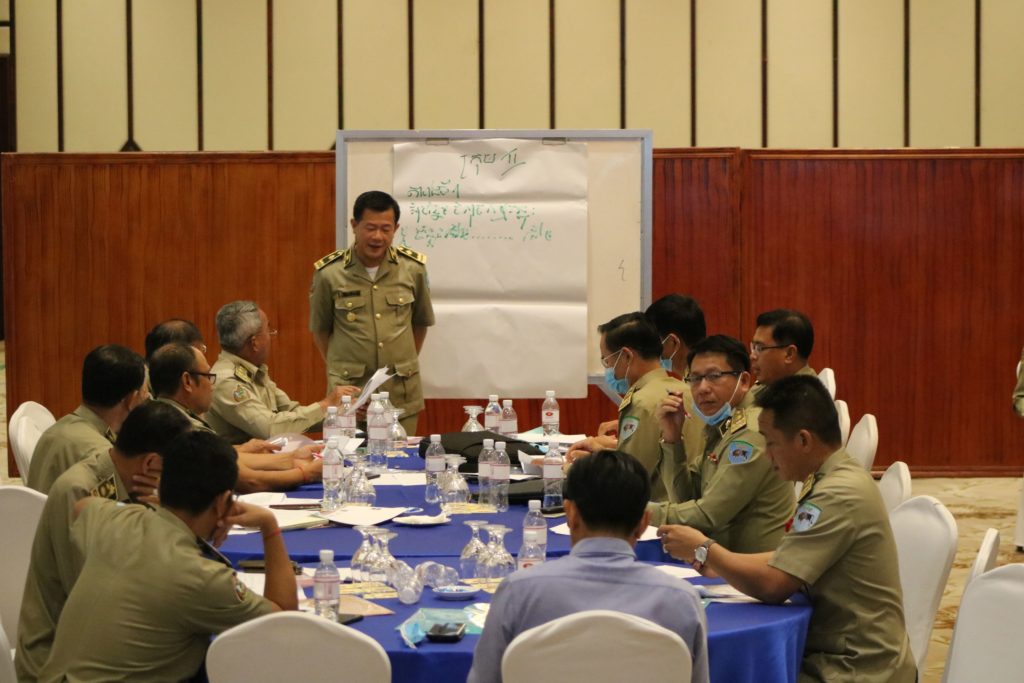
The documents required to be submitted with the application form are, namely, (i) a national identification card or passport; (ii) a land tenure certificate; and (iii) business patents if an applicant is a large entity or a company. The guidelines were developed to include sample attachments of application forms, verification and evaluation forms for inspecting the tree plantations in the field, a two-paged example of the forest registration certificate, and a logbook for recording harvesting data and other related information.
Natural persons or private legal entities who are interested in registering their private tree plantations may consult with the specialized officers of the Department of Plantation and Private Forest Development of the Forestry Administration or the specialized officers of the Forestry Administration division before applying for private forest registration.
There are three interrelated steps in the registration process. The initial step proceeds through the provision of general guidance to the filing out of the application form and submission of the required documents for reference and certification of legal acquisition. The second step establishes the process by which field verification and evaluation are conducted by appropriate authorities comprising of Forestry Administration officers from either or both the central and local levels. Finally, the third step is the issuance of the private forest registration certificate.
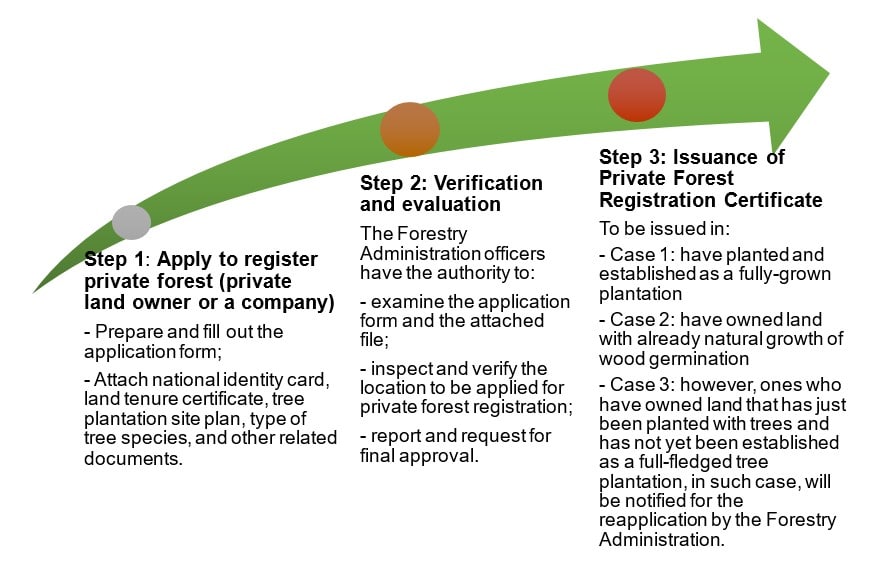
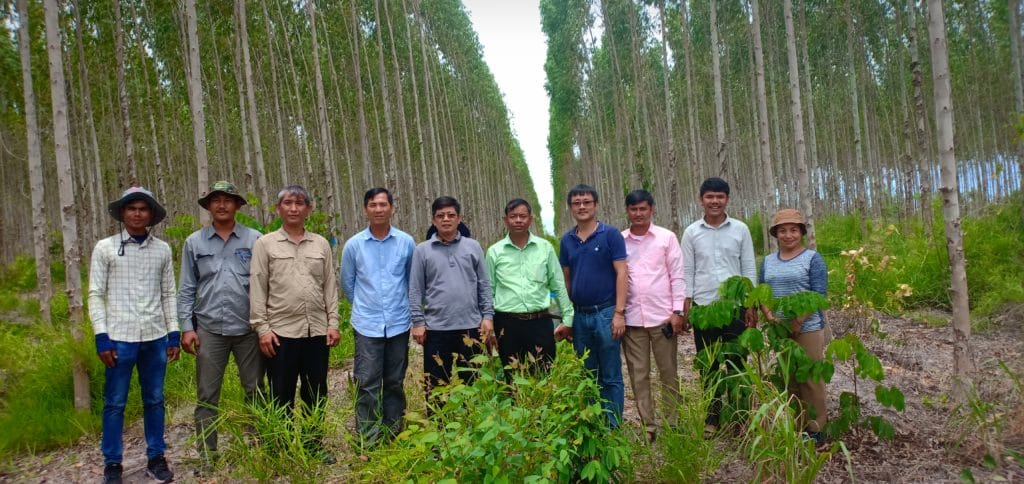
In the provision of private forest registration certificate, the Forestry Administration will provide a certificate of private forest registration to natural persons or legal entities who have applied for private forest registration at the request of the Provincial Department of Agriculture, Forestry and Fisheries (for household and small-scale private forest) and at the request of the specialized units under the supervision of the Forestry Administration (for medium- and large-scale private forest) with attached reports and records of field verification and evaluation. This certificate of private forest registration will be provided to the natural person or legal entity who has applied for private forest registration with the following conditions:
- land ownership certificate in accordance with the land law (original copy);
- the location of the proposed land is safe;
- in the case where the land is leased from the private sector on long term basis, the lease agreement and the consent from the property owner to register as a private forest in writing are needed; and
- planted trees make up at least 35% of the land cover.
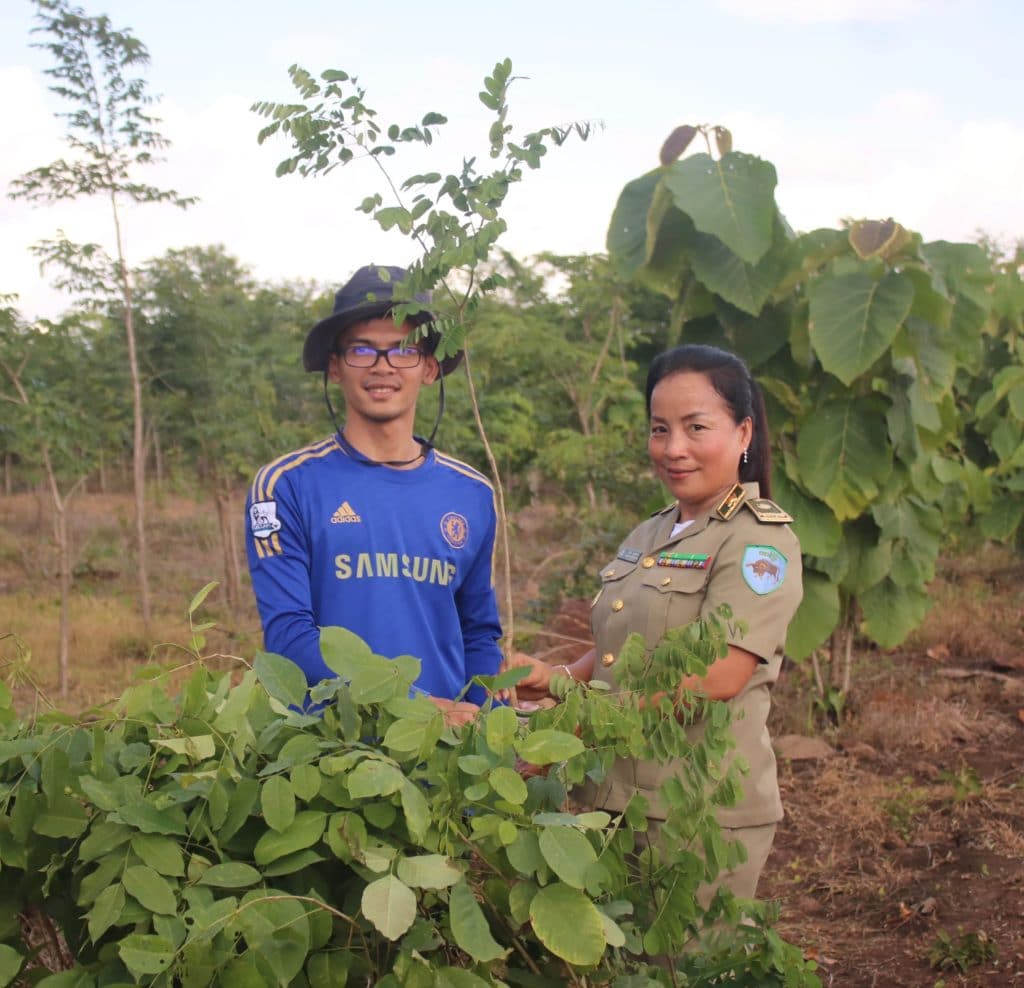
“The Private Forest Registration Guidelines will contribute to the expansion of reforestation in Cambodia through the private sector’s engagement in tree plantation establishment and agroforestry practices, and the distribution of seedlings free-of-charge to local communities through the AFoCO project reflects its significant contribution to reforestation in theproject target areas”
Mrs. Lim Sopheap, Deputy Director of the Department of Private Forest and Forest Plantation Development
In the case where the location of the application for registration has not met all the above conditions, the Forestry Administration has the authority to prepare a letter of notification to the natural person or private legal entity, as well as to recommend the documentation required and re-application.
The issuance of a certificate of private forest registration can be issued to the owner of the private land in the size of the area and/or the number of trees of equal value, depending on the actual situation in which the owner planted the tree, for example, for timber production or planting trees as a fence along borders.
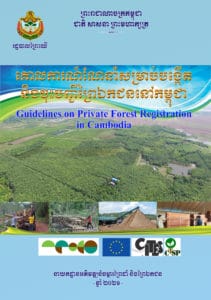
If an applicant or a private tree plantation owner has complied with the requirements associated with both the legal acquisition and evaluation criteria for private tree plantations, a private forest certificate shall be issued to the applicant no later than two months after its initial submission. The application may be rejected, however, if the applicant fails to provide sufficient evidence associated with the legal title to the land and will be required to resubmit the application form. If an applicant lacks the required supporting documents or is unable to obtain satisfactory field verification, or is only partially able to comply with the field assessment criteria for their private plantation, the issuance of a private forest certificate will be suspended. The guidelines stipulate, as well, that in registering private forest plantations, owners are not required to have permits in their possession that are associated with the planned harvesting or transporting of wood products originating from their tree plantations, except for those products that are planned to be exported.
Importance and Contributions to Reforestation
In order to achieve the target defined in the Agricultural Strategic Development Plan 2019-2023, the Forestry Administration has tried to increase tree plantation from which the wood can be anticipated to be harvested from 200,000 m3/year in 2019 to 300,000 m3/year by 2023. In addition, the Forestry Administration has been customizing the reforestation on state-owned degraded forest land and promoting the participation of private sectors to plant trees on their private land for multi-purpose, especially for commercializing, in the long, medium, and short term. These aim to create a variety of supply sources of timber and fuelwood from tree plantations and help improve the living standards of local communities, as well as reduce their dependence on natural forest sources.

“The guidelines is intended to provide policy support by means of incentives, including a 50% export tariff reduction on wood products derived from locally planted trees, to promote the extensive participation of the private sector in investing in tree plantations on private land.”
Dr. Ly Mengseang, Director of the Department of Private Forests and Forest Plantation Development
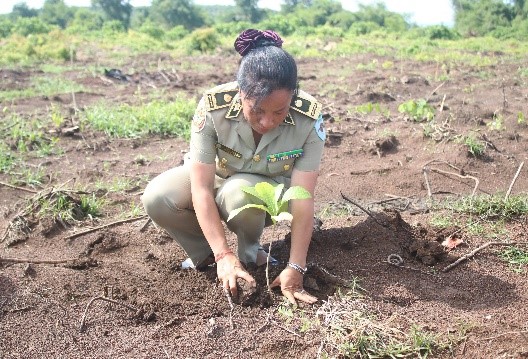
“Private forest registration is a huge contribution to ensuring the commercialization of timber products listed in the CITES’s Appendices, tracking legal sources of those wood products sourced from tree plantations.”
Mrs. Lim Sopheap, Deputy Director of the Department of Private Forest and Forest Plantation Development
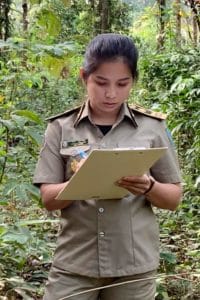
“The Forestry Administration has established the practical procedures for the registration of private forests using forms such as private forest registration applications, logbook, and certificates that may meet the requirements of the CITES Convention, which certifies legal sources of wood products for commercial purposes for the international trade. Registration of tree plantations or agroforestry plantations at the residential land in the rural area in Cambodia may be an incentive set out in the guidelines for the establishment and registration of private forests in Cambodia, which contribute to rehabilitating key high-commercial tree species.”
Ms. Ouch Sineth, Vice Chief of Office of the Department of Private Forests and Forest Plantation Development and a Project Officer for the Registration of Private Forests in Cambodia
Public Interests and Way Forward
At first, there were low expectations and that there would be a request for private forest registration immediately after the consultative workshop in November 2020, while the guidelines were in the process of editing and requesting for the final endorsement for publication and official use on the ground. Notwithstanding and interestingly, there were two companies, the first private sector in Cambodia, have applied to register their private forest plantations in just six months since the consultative workshop in late 2020. In total, there are four locations of private forest plantations that were registered in the first semester of 2021. The first location covers an area of 8.92 hectares, situated in Borseth district, Kampong Speu province, and the primarily planted tree species consist of Aquilaria crassna Pierre; Dalbergia cochichinensis Pierre; Afzelia xylocarpa (Kurz) Craib.; Pterocarpus macracarpus Kurz. The second location has an area of 280 hectares, located in Sre Ambel district, Koh Kong province, and the mainly planted tree species consist of Aquilaria crassna Pierre; Dalbergia cochichinensis Pierre; Dalbergia odorifera; Afzelia xylocarpa (Kurz) Craib.; Pterocarpus macracarpus Kurz; Khaya senegalensis. The third location is 33 hectares, located in Teuk Chhou district, Kampot province, and the main tree species planted consist of Aquilaria crassna Pierre; Dalbergia cochichinensis Pierre; Afzelia xylocarpa (Kurz) Craib. The fourth location covers 37 hectares situated in Banteay Meas district, Kampot Province, where Aquilaria crassna Pierre; Dalbergia cochichinensis Pierre; Afzelia xylocarpa (Kurz) Craib were planted.
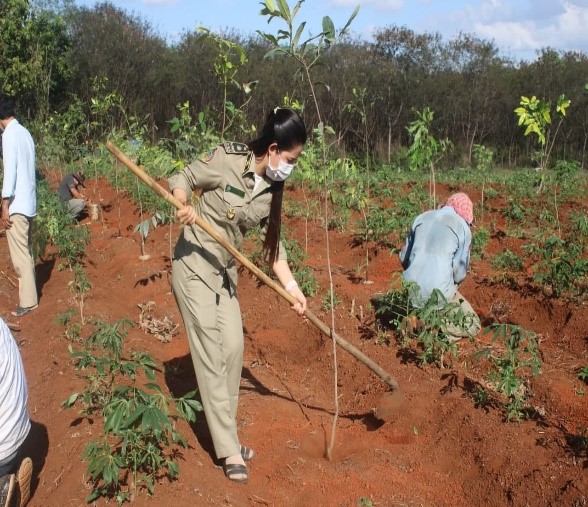
“Such positive immediate impacts shows that the private sector has been very interested in investing in forest plantations in Cambodia, which plays a key role and contributes significantly to forest plantation development and forest rehabilitation in Cambodia.”
Ms. Ouch Sineth
For the way forward, the project on “The registration of small-scale private forest plantation in Cambodia” plans to cooperate with the Department of Private Forest and Forest Plantation Development to publish and organize training courses to disseminate the Guidelines for Establishment and Private Forest Registration in Cambodia to Forestry Administration officials at both central and sub-national levels as well as the private sector to expand the interest and promote the participation of the private sector in the investment of plantations and the registration of private forests more widely throughout Cambodia.
Contributed by Chheang Dany, Project Manager for AFoCO/012/2019 , Say Sinly, Project Staff for AFoCO/012/2019, and Khiev Sokleap, 2021 AFoCO Fellowship Official from Cambodia

